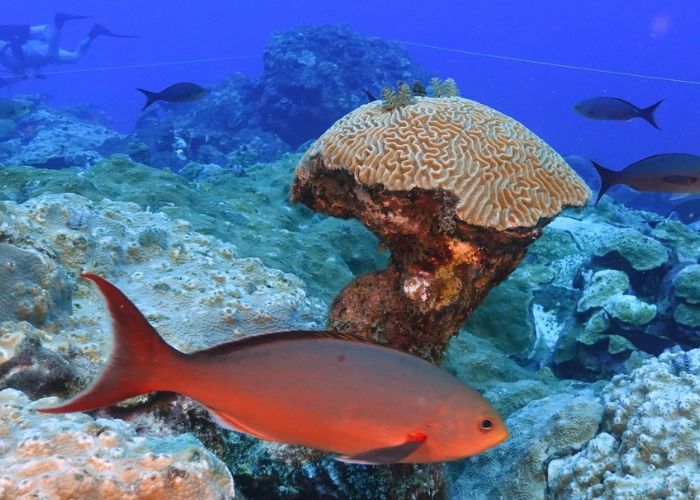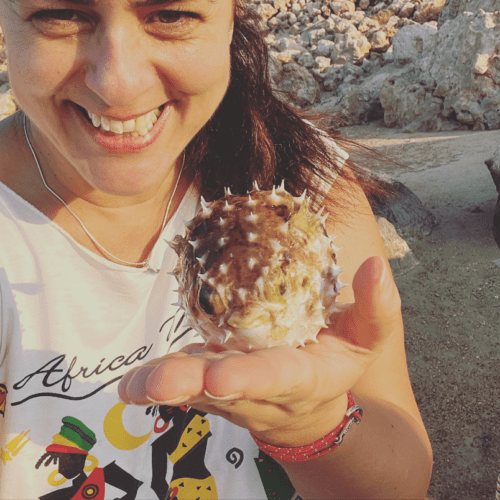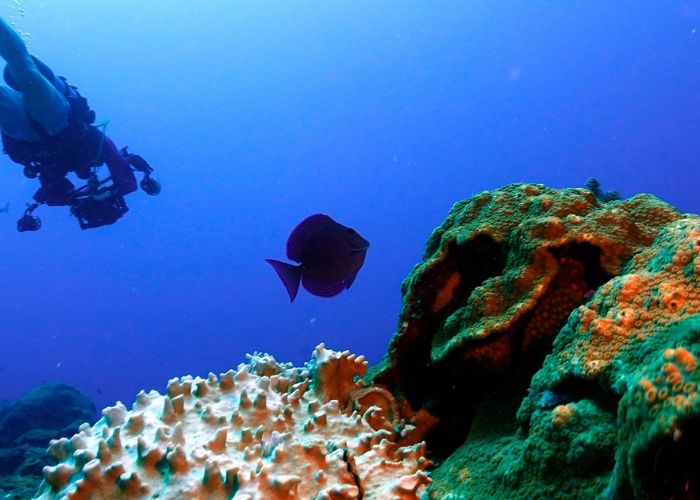The news that a group of divers broke the record for getting rid of the most lionfish in a single expedition made me very happy as an experienced scuba diver who has spent over seven years diving in Florida’s coral reefs. Let’s read below about “Divers Break Record by Removing Over 31,000 Venomous Fish from Florida Reefs”.
REEF (Reef Environmental Education Foundation) recently held a two-day event to get rid of lionfish. As a result, 31,451 poisonous lionfish were caught off the coast of Florida. This number was much higher than the previous record of 19,000 lionfish caught in one event in 2019.
Table of Contents
Divers Break Record by Removing Over 31,000 Venomous Fish from Florida Reefs
As someone who has seen firsthand how invasive lionfish can destroy native species and ecosystems, I think this was a big win for conservation that should be celebrated.
How the Lionfish Invasion Could Be Dangerous
Lionfish are not from the Atlantic Ocean, and they are thought to be one of the most damaging invasive species that Florida’s reefs have to deal with. Lionfish may look pretty with their unique maroon and white stripes and long pectoral fins. They do, however, have up to 18 poisonous spines that can seriously hurt any predator or careless diver.
Lionfish are native to the Indo-Pacific region. They probably got to the Atlantic and Caribbean seas from home aquariums in the 1980s. Because there were no natural predators in their new home, lionfish populations grew very quickly. Over two million eggs can be laid by a single lionfish every year!

Lionfish are very hungry and eat over 50 species of native reef fish and small crustaceans. In just 5 weeks, lionfish killed off almost 80% of the new Atlantic coral-reef fish that were born there, according to one study.
Lionfish upset the natural balance of reef ecosystems by outcompeting native species for food and space. Lionfish are thought to have already killed off up to 90% of the native fish that live on some coral reefs. This loss of biodiversity can have effects that spread through whole marine ecosystems.
Getting rid of lionfish is important
Getting rid of lionfish is important to protect Florida’s remaining native fish species and bring reef ecosystems back into balance that are out of balance. That’s why the news that over 31,000 lionfish were taken away is so big.
Over the years, I’ve taken part in a number of lionfish derbies and removals. But it’s really amazing how much work it takes to catch so many lionfish in just 48 hours.
Scientists, spearfishers, photographers, and conservationists, among others, were among the more than 100 experienced divers who worked together with hand nets and spears to get lionfish off of reefs and wrecks off the coast of Florida. Volunteers led by REEF caught lionfish from more than 100 locations along hundreds of miles of coastline.
Anyone can be successful if they catch even 10 lionfish in one dive. But the divers at this event went above and beyond what was expected. They showed that we can make progress in the fight against invasive lionfish if we work together and are dedicated.
The Problems with Getting Rid of Lionfish
I know firsthand how hard and dangerous it is to try to catch thousands of poisonous lionfish because I’m a diver.
Lionfish hide in cracks in the reef and on wrecks, so you have to look carefully in a lot of different places. Because they blend in, it’s easy to miss them. And even through a wetsuit, a simple brush against their spines can be very painful.
Divers face risks like decompression sickness, hypothermia, running into sharks, and being completely worn out over the course of several days. A huge task also lies in coordinating enough boats, gear, and volunteer divers to cover such a large area.
But the divers in this event showed that these problems can be solved with a lot of planning, training, and a shared desire to protect reefs. Their success shows that getting rid of a lot of lionfish is possible with the right tools and help.
Effects on the Reefs in Florida
It is unlikely that lionfish will be completely eradicated, but scientists think that getting rid of just one-third of them from reefs could help native fish populations recover in some ways. The number of lionfish in the areas that were targeted dropped by a large amount after this record-breaking removal event.
On my frequent dives, I can already see small signs of improvement. On nearby reefs, there seem to be more schools of small snappers, wrasses, and parrotfish. It has also been seen by researchers that cleaner shrimp and other native species are less likely to be eaten at removal sites.
Getting rid of mature lionfish might also help slow down reproduction, since a single lionfish can have babies every few days. With fewer adults who can have children, population growth may slow down in the future.
The problem is still there, of course. Lionfish still do well in deep water and areas that are hard to get to. But this event showed that large-scale removals can successfully lower the number of lionfish on reefs that have been heavily damaged.
A Look Ahead
As a seasoned diver in Florida, I really hope that this record-breaking removal will lead to even more action in the future to get rid of lionfish that are spreading disease. Long-term removals are needed to make a difference that lasts.
One day, I hope to be able to show my kids a Florida reef system that is full of different kinds of native fish and corals and is very healthy. Getting rid of the harmful lionfish is an important step toward keeping these unique ecosystems safe for future generations.
Volunteer divers, researchers, and event organizers have shown that we can fight back against invasive species if we work together and don’t give up. The health of our oceans is important to all of us.
Divers, snorkelers, fishermen, and anyone else who loves the ocean should do what they can to help. Join a lionfish derby in your area. Tell REEF about what you see. Teach others and back efforts to protect the environment.
And if you haven’t already, you should think about getting your scuba certification! You don’t need any experience to start training. Think about being able to actively protect fragile reef ecosystems by removing lionfish by hand.
We can stop the lionfish invasion, bring back native fish populations, and bring balance back to Florida’s threatened coral reefs if we all work together. This removal event that broke all kinds of records shows what hardworking divers can do. Let’s keep going with this. I hope you like reading “Divers Break Record by Removing Over 31,000 Venomous Fish from Florida Reefs”.

Marta, the driving force behind WaterWorldCraze.com, holds a Master’s degree in Marine Biology and has extensive experience in water sports and activities. With over 7+ years of hands-on experience in marine research and conservation, she has participated in numerous underwater expeditions and projects. Her passion for the aquatic world shines through in her expertly curated content. Join Marta as she explores the wonders of marine life and shares her adventures. Connect with her on Instagram @marinebiologymarta for more insights and updates.

